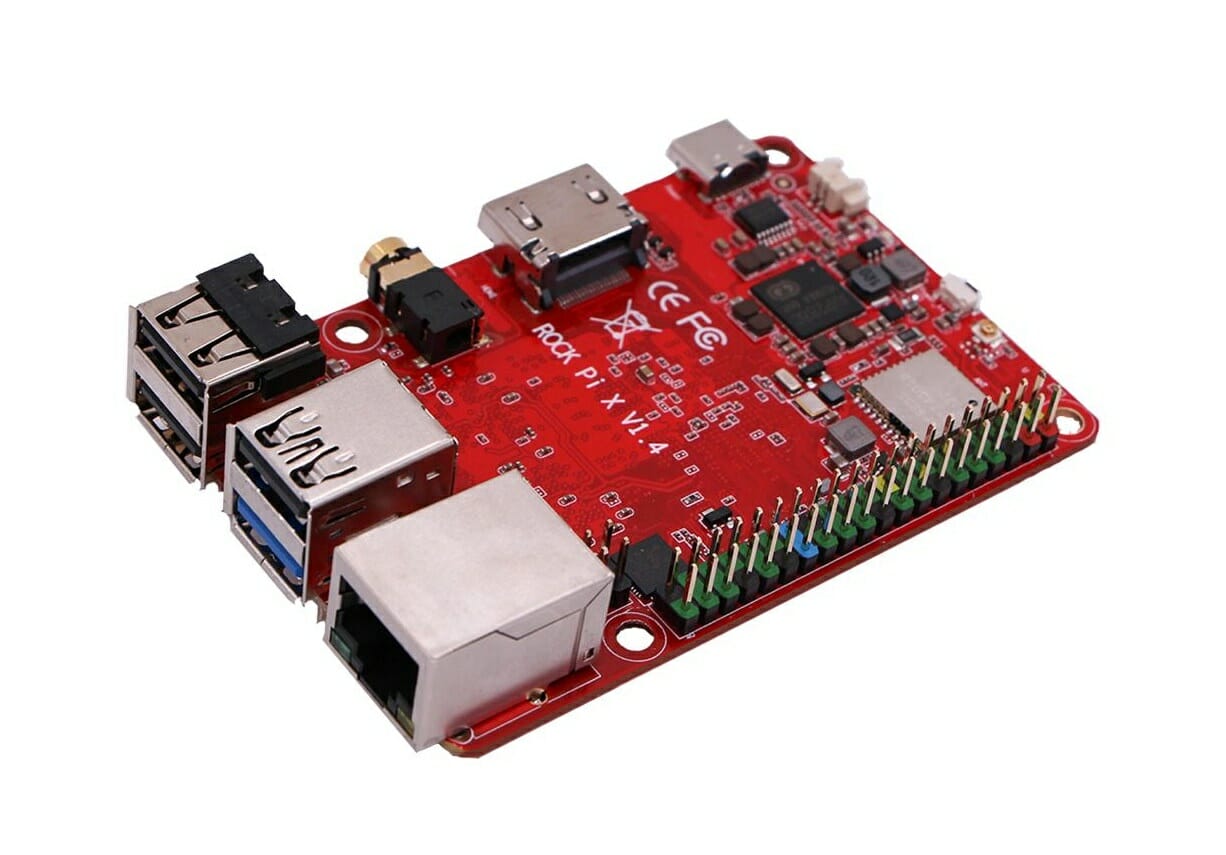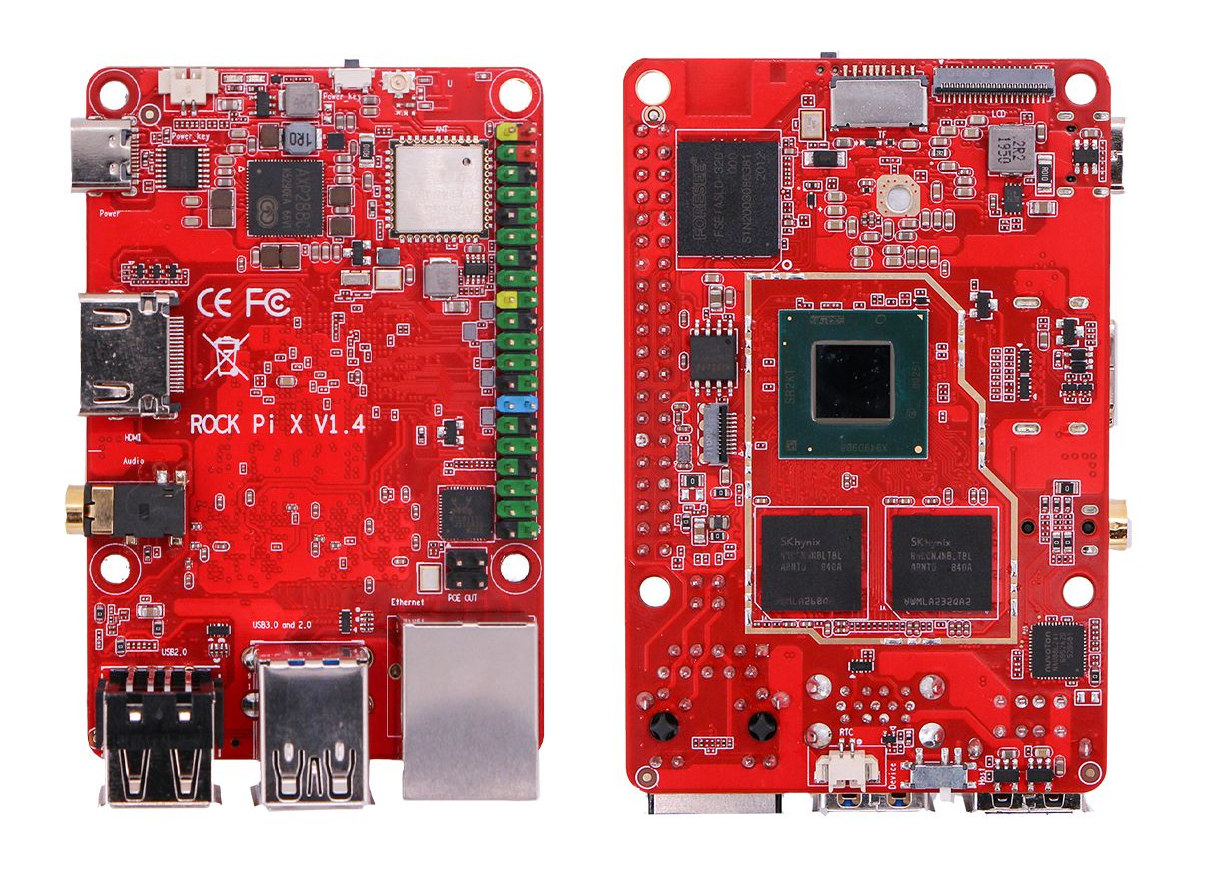Radxa unveiled Rock Pi X intel SBC powered by an Intel Atom x5-Z8350 processor over a year ago with a starting price of just $39 making one of the cheapest Windows 10 single board computer together with Atomic Pi, but the latter is not super convenient to use.
What’s new is that you can now buy Rock Pi X SBC, but not quite for $39 since the board has been redesigned, and instead, you’ll find the 4GB RAM/32GB eMMC flash model (Rock Pi X B4E32) for $75 on Seeed Studio, but if you can do with 2GB RAM and 16GB flash storage, AllNetChina has stock for $59 plus shipping. Those are the so-called model B boards with WiFi and Bluetooth, as well as support for an optional PoE module.

- SoC – Intel Atom x5-Z8350 “Cherry Trail” quad-core processor @ 1.44 GHz / 1.92 GHz (Turbo) with Intel Gen8 HD graphics @ 500 MHz
- System Memory – 1 GB, 2 GB. or 4GB LPDDR3-1866
- Storage – 8GB, 16GB, 32GB, 64GB or 128GB eMMC flash , MicroSD card socket
- Video Output – HDMI 1.4 port up to 4K @ 30 Hz
- Audio I/O – Via HDMI, 3.5mm audio jack
- Connectivity
- Gigabit Ethernet with PoE support (additional PoE HAT required),
- 802.11 a/b/g/n/ac WiFi 5 and Bluetooth 4.2 Classic + LE with u.FL antenna connector
- USB – 1x USB 3.0 port, 3x USB 2.0 host ports, 1x USB OTG Type-C port
- Expansion – 40-pin Raspberry Pi compatible header with 6x GPIOs, 2x UART, 2x SPI, 2x I2C, 1x PCM/I2S, 1x SPDIF, 2x PWM, 1x ADC, and power signals (5V, 3.3V and GND)
- Misc – Power button, LED, RTC with battery connector
- Power Supply
- 5V-20V up to 3A/1A Via USB-C port with QC and PD fast charging support;
- AXP288C PMIC
- PoE support via additional HAT
- Dimensions – 85 x 54 mm

The specifications have changed since last year with the eMMC flash being soldered directly to the board instead of having a removable module found in Rock Pi X v1.3 or earlier, and the MIPI DSI/eDP display port and MIPI CSI camera interface have been removed from the specs. However, we can still see an LCD connector on the top right corner of the photo above.
If you intend to run Windows 10 on the board, you’ll need to buy Rock Pi X with 32 GB or more storage capacity. Ubuntu 20.04 should work fine with just 16 GB, and other lightweight distributions will have no problem running on 8 GB storage. Want more technical details about the board and getting started guides? Head over to the wiki.
Thanks to Jim and j_c for the tip.

Jean-Luc started CNX Software in 2010 as a part-time endeavor, before quitting his job as a software engineering manager, and starting to write daily news, and reviews full time later in 2011.
Support CNX Software! Donate via cryptocurrencies, become a Patron on Patreon, or purchase goods on Amazon or Aliexpress




